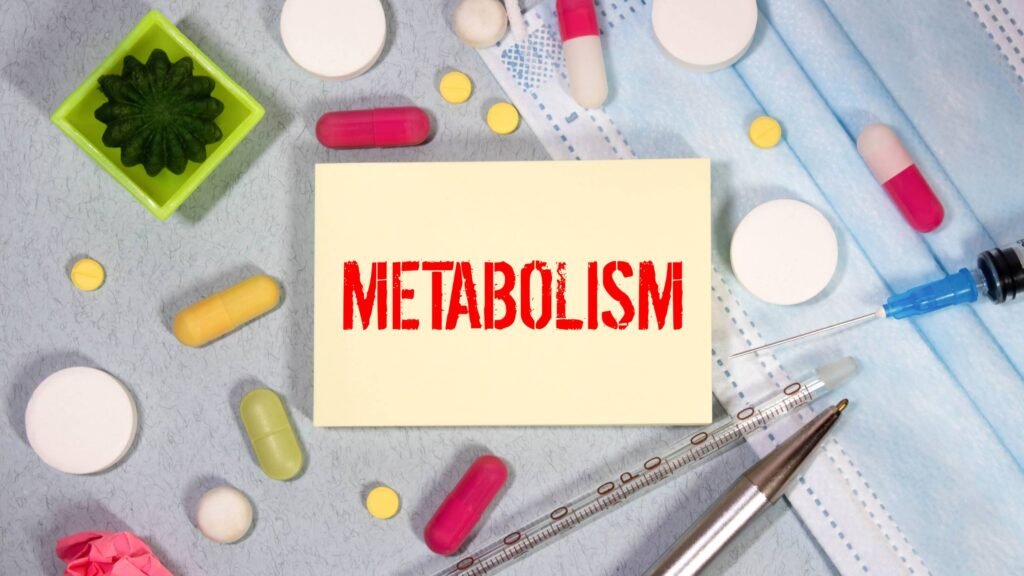When it comes to weight loss, myths are everywhere. It’s like everyone has an opinion about what works and what doesn’t—whether it’s your neighbor, a fitness influencer, or that random article you read online last week.
The problem? So many of these ideas are outdated, misleading, or flat-out wrong.
If you’ve ever felt frustrated because “nothing works,” chances are you’ve been unknowingly following one of these myths. Let’s bust some of the biggest weight loss misconceptions so you can focus on what actually works.

1. Myth: You Have to Eat Less to Lose Weight
Reality: It’s not about eating less; it’s about eating smarter.
One of the biggest mistakes people make is drastically cutting calories. Sure, it might seem logical—less food equals weight loss, right?
But here’s the catch: your body needs fuel to function. If you cut too many calories, your metabolism can slow down, making it even harder to lose weight.
Instead, focus on eating nutrient-dense foods like lean protein, healthy fats, and complex carbs. A well-balanced plate leaves you feeling full and nourished while keeping your metabolism humming.
Remember, starving yourself isn’t the answer—it’s about giving your body the right kind of energy.
2. Myth: Carbs Are the Enemy
Reality: Not all carbs are created equal.
For years, carbs have been unfairly labeled as the ultimate villain in weight loss. But here’s the truth: your body needs carbohydrates for energy, especially if you’re active.
Cutting them out completely can leave you feeling sluggish and cranky.
The trick is to focus on quality carbs—think whole grains, fruits, and vegetables. These provide fiber, vitamins, and long-lasting energy.
On the flip side, avoid refined carbs like sugary snacks and white bread, which can spike your blood sugar and lead to cravings.
3. Myth: Weight Loss is All About Willpower
Reality: Your environment, hormones, and habits play a huge role.
This one’s a bit of a guilt trip, isn’t it? Many people feel like failures when they can’t stick to a diet, thinking they just lack the willpower. But weight loss isn’t just about self-control.
Factors like stress, sleep, and hormonal imbalances can sabotage even the most determined efforts. For instance, high cortisol levels from stress can lead to weight gain around your midsection.
Instead of relying solely on willpower, focus on creating habits and an environment that supports your goals.
4. Myth: You Have to Exercise for Hours Every Day
Reality: Quality beats quantity when it comes to workouts.
Spending hours at the gym doesn’t guarantee results. Overtraining can actually backfire, leading to burnout or even injury.
Instead, aim for 30–45 minutes of effective exercise, such as strength training or high-intensity interval training (HIIT). These workouts are more efficient and help build muscle, which increases your resting metabolism.
Plus, movement throughout the day—like walking or stretching—can make a big difference without leaving you exhausted.
5. Myth: Fat Makes You Fat
Reality: Healthy fats are essential for weight loss.
For years, low-fat diets were all the rage. But now we know that healthy fats—like those found in avocados, nuts, and olive oil—are crucial for overall health and weight management.
Good fats help keep you full and satisfied, making it less likely you’ll overeat. Plus, they support brain health, hormone regulation, and even fat-burning processes.
The real culprits? Trans fats and excessive saturated fats, so be mindful of processed foods.
6. Myth: The Scale is the Best Measure of Success
Reality: Your weight is just one piece of the puzzle.
Let’s be real—stepping on the scale can feel like a rollercoaster of emotions. But focusing solely on that number can be misleading. Weight can fluctuate daily due to water retention, muscle gain, or even the time of day.
Instead, track your progress through non-scale victories like how your clothes fit, your energy levels, or improvements in strength and stamina.
These are often more meaningful indicators of success.
7. Myth: Supplements and Detox Teas Will Speed Up Results
Reality: Most of these products are marketing gimmicks.
It’s tempting to believe that a magic pill or tea can melt fat away, but the truth is, these products are often ineffective and sometimes even dangerous.
Many weight loss supplements are unregulated and come with a laundry list of side effects.
The real secret? A consistent diet and exercise plan. Your body has its own detox system (your liver and kidneys), so there’s no need to splurge on expensive teas or pills.
8. Myth: You Can Spot-Reduce Fat
Reality: Fat loss happens all over your body, not just in one area.
Wish you could shrink your belly or slim down your thighs? Unfortunately, spot-reducing doesn’t work.
When you lose fat, it comes off your entire body, not just the areas you’re targeting with exercises.
Instead, focus on overall fat loss through a combination of strength training, cardio, and a healthy diet.
And remember, building muscle in specific areas can help create a toned appearance, even if you can’t control where the fat comes off first.
9. Myth: Once You Lose Weight, You’re Done
Reality: Maintaining weight loss is an ongoing process.
Here’s a hard truth: keeping the weight off is often harder than losing it. Many people regain weight because they view their diet as a temporary fix rather than a long-term lifestyle change.
To maintain your results, focus on building sustainable habits you can stick with for the long haul. That means finding foods and workouts you actually enjoy, managing stress, and staying consistent even when life gets busy.
Final Thoughts
Weight loss doesn’t have to feel like a constant battle. By understanding and ditching these common myths, you can approach your journey with confidence and clarity.
Remember, it’s not about perfection; it’s about progress.
And hey, if you ever catch yourself falling for one of these myths again, don’t sweat it—learning and growing is part of the process. You’ve got this!
Can I lose weight without exercising?
Yes, weight loss is primarily about creating a calorie deficit, which can be achieved through diet alone.
However, exercise offers many benefits like improving metabolism, preserving muscle mass, and boosting mental health.
Even light activities like walking can make a big difference in your overall health and weight loss journey.
How quickly should I expect to lose weight?
Healthy weight loss is typically 1–2 pounds per week. Rapid weight loss might seem appealing, but it often leads to muscle loss, nutrient deficiencies, and weight regain.
Focus on sustainable changes for long-term success rather than quick fixes.
Is intermittent fasting effective for weight loss?
Intermittent fasting can be effective for some people as it helps control calorie intake and may improve metabolic health.
However, it’s not a one-size-fits-all solution. If you choose to try it, focus on nutrient-dense meals during eating periods and ensure it fits your lifestyle to maintain consistency.

